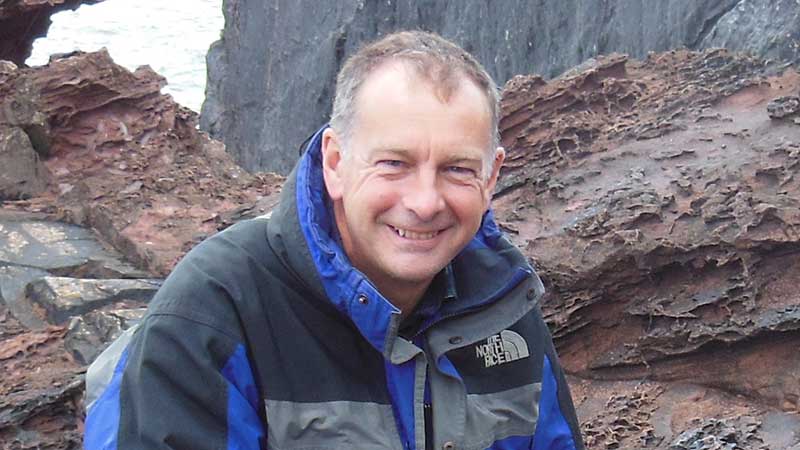Published:

The damaging impact of Covid-19 on the UK’s oil and gas industry and the vital role of universities to stabilise its future has been highlighted by a prominent scientist.
Professor John Underhill, Chair of Exploration Geoscience at Heriot-Watt University, warns there is a real threat to the sustainability of the sector if companies are unable to recruit the next generation of skilled workers as a consequence of the recent rapid downturn brought on by the pandemic. This, he adds, would also harm any plans to transition away from carbon-heavy energy sources towards green alternatives as the knowledge, skillset and infrastructure required will not be available.
He delivered the warning whilst giving evidence before the UK Parliament’s Scottish Affairs Select Committee in Westminster as part of an esteemed panel of experts. During the session, it emerged that around 7500 oil and gas workers had lost their jobs since the onset of Covid-19 with tens of thousands more at risk.
We need the throughput of talent flowing through the academic pipeline in order to meet our future energy needs, particularly as we transition away from traditional oil and gas towards greener alternatives that face the Low-Carbon Energy Transition and challenge to meet Net Zero emission targets.
Professor Underhill said the direct impact of the pandemic means a number of companies are no longer supporting student internships, which are either being postponed or, in worse cases, cancelled.
He continued: “We have seen the number of direct employment opportunities for graduates drop-off, oil and gas projects are reducing, research and development is coming under increasing threat and there have been widespread job losses in the sector.
“We need the throughput of talent flowing through the academic pipeline in order to meet our future energy needs, particularly as we transition away from traditional oil and gas towards greener alternatives that face the Low-Carbon Energy Transition and challenge to meet Net Zero emission targets.
“Gas demand, as we wean ourselves off traditional carbon energy sources, is absolutely crucial to the future of prosperity and in safeguarding jobs. What is worth remembering is oil and gas is still expected to have a 45% role to play in the world energy mix come 2050. We cannot get away from the fact that oil and gas will continue to be hugely important to fuel the global economy and the UK’s heat and transport needs.”
As well as outlining the immediate impacts the pandemic has had for internships, research and development and training, Professor Underhill stressed the importance of delivering suitable training in order to deliver energy transition and meeting net zero carbon emissions.
He called on the UK Government to increase its efforts to bring about a ‘sector deal’ that focuses on extending the life of the North Sea industry and boost the UK’s research and training capabilities and subsurface solutions around the safe geological storage of carbon dioxide and hydrogen, transformational technology, decommissioning and underwater engineering.
He said: “Covid-19 has underlined the need for a sector deal but to expand this beyond oil and gas into Low-Carbon Energy Transition and Net Zero technologies. I would encourage the UK Government to redouble its efforts to get a sector deal but with an expanded remit that faces the low-carbon energy needs aligned with Net Zero emission targets. Doing so would extend the life of the mature North Sea Basin through use and re-purposing of existing field and infrastructure. It would also see the UK play a significant role in the Decarbonisation of the Industrial Clusters located around the basin. There is an opportunity and this is the time to do it.”
Professor John Underhill is the Academic Director of the pan-UK Centre for Doctoral Training (CDT). Entitled GeoNetZero (GNZ) the program will see around 50 postgraduate students undertake PhD research and training in Geoscience that faces the Low-Carbon Energy Transition and Challenge to meet Net Zero emission targets. The first students will join the program later this year.